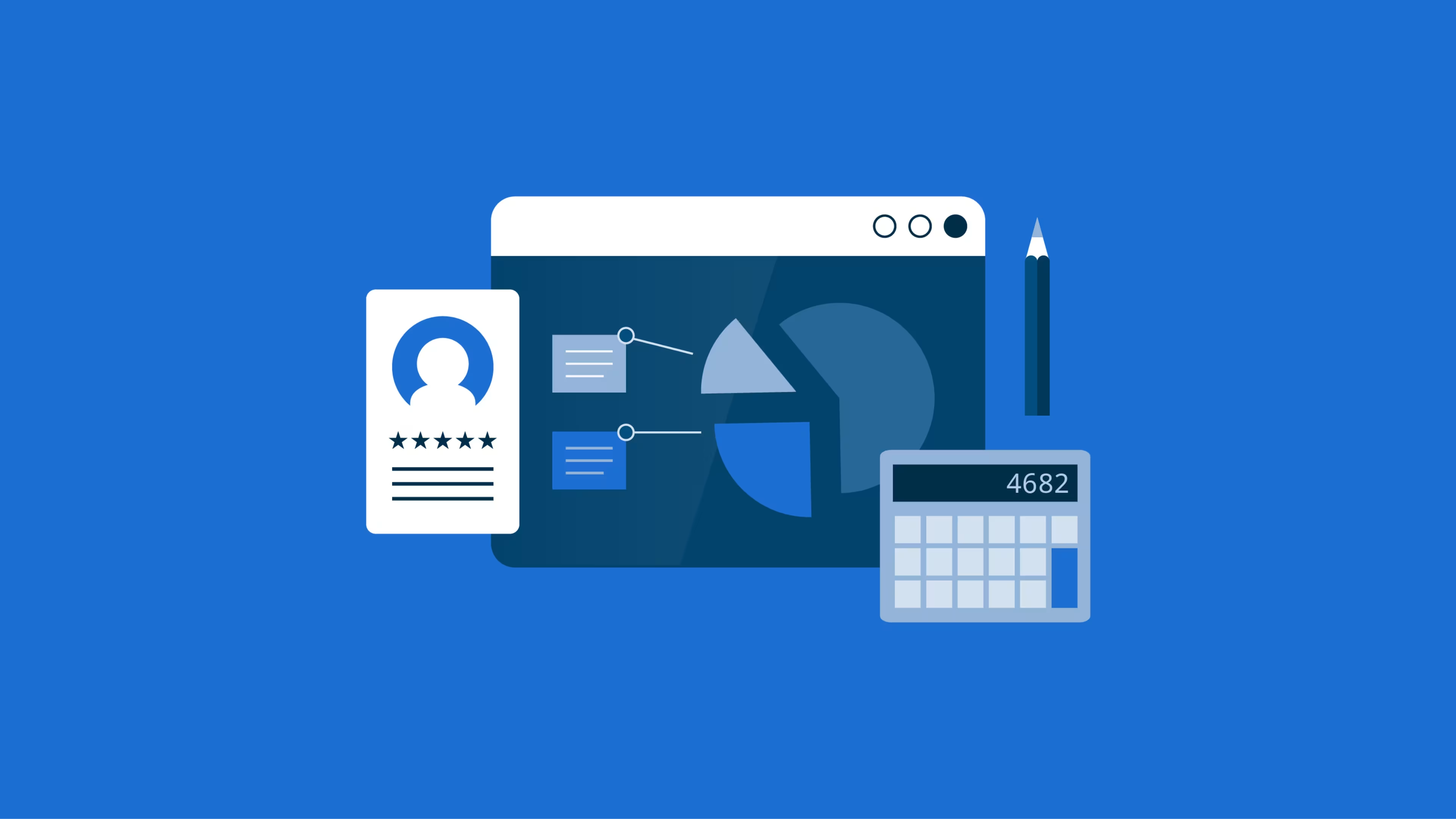Your accountant is a business partner. These tips will help you find a good one.
Many small businesses start without an accountant, either to launch quickly or to save money. At some point, however, every business owner needs more help managing their finances and realizes they need to look for a CPA or bookkeeper. But not every business leader knows how to find the right accounting firm.
Each accounting firm has its own specialities and services, making it hard to pick the right CPA. This article will help you learn what to look for in a CPA and what questions to ask so you find not just an accountant but a trusted business partner.
Considerations when choosing an accountant
If you know you need help managing your small business's finances, the first step is figuring out what type of help you need and what kind of budget you have so you can use this information to guide your choices.
When do you need one?
Many small businesses don't need a full-time or even a part-time accountant. They simply don't have enough financial transactions to keep one busy every day. But they may definitely need help at the end of the year when tax time comes and they have to close the fiscal year.
However, the benefits of getting regular financial reviews and having up-to-date books throughout the year may justify the added cost of paying for monthly services, and you may want to consider getting more than just tax preparation services.
Which services do you need?
Bookkeeping, tax preparation, and financial reporting aren't the only services accounting firms provide. Before shopping for an accountant, it helps to know what these services are so you can decide if they are something your business needs.
Here are some common accounting services:
Bookkeeping: This is one of the most common services, but not every accounting firm provides it.
Tax planning and preparation: Tax preparation is the process of preparing your tax return. Tax planning is a more advanced service that optimizes a business's tax situation.
Payroll: An accountant can take on all the hassle of calculating pay, determining withholding amounts, and cutting payroll checks.
Financial reporting and statement preparation: Your accountant can provide you with monthly, quarterly, or annual financial statements that give you insights into your business and use business intelligence tools to create even more advanced reports and predictions.
Business development: An accountant can perform audits and valuation reports of your business that will help you get funding from financial institutions.
Advisory services: Your accountant can be your business advisor.
Outsourced CFO: Some accounting firms provide outsourced financial strategy services for small and midsize businesses.
What to look for in an accountant
After you have figured out why you need an accountant and what services that accountant needs to provide, it is time to determine what qualifications you need your accountant to have. Here are some things to look for.
Certifications
Not every accountant or bookkeeper has a degree or certification. If all your business needs are bookkeeping and financial statements, then hiring a non-certified bookkeeper is a good option that will save money.
If you need more than simple bookkeeping, you will want to look for a certified public accountant (CPA). A CPA has a bachelor's degree in finance or a similar industry and has met the rigorous experience and exam requirements.
Depending on the services you need from your accountant, there are other certifications you will want to look for. A certified management accountant (CMA) can help business owners manage financial performance. A certified valuation analyst (CVA) or a CPA that is accredited in business valuation (ABV) can help evaluate your business.
Industry expertise
Each industry has its own financial quirks and requires some custom accounting processes, and accountants and firms specialize in specific industries for just this reason. Some of the businesses that accounting firms specialize in include auto repair shops, restaurants, retail stores, construction companies, and nonprofits. If you find an accounting firm that knows your industry, they will be able to get started quicker.
Company size
You can choose from small one-person firms to national accounting firms. Your choice should depend on how the firm will fit with your company's culture and needs. Do you feel more comfortable with a large firm whose name you know, or do you feel the face-to-face time you could get from a smaller firm is more important?
Services provided
Every accounting firm provides its own variety of services. After going through the reasons you need an accountant for your business in the first section, you should have an idea of the services you need. Double-check that the firms you are vetting provide those services.
Technology used
If you are already using software to keep track of your accounts, you will want to make sure that the accountant you choose uses the same software or can at least import data from your financial software.
If your software is outdated or you aren't using any, you will want to investigate the software accountants have to offer. Some cloud accounting software is designed to connect to many different types of financial data sources and provide real-time financial reporting. This means you can monitor the financial health of your business and get up-to-the-minute insights from anywhere at any time of the day.
Where to find the right accountant
Once you are ready to search for an accountant, you will have no trouble finding many to choose from, but your search will be simpler if you can narrow it down first. While you can find an accountant via a web search, it may not be the best method of searching for a good one. Here are some better ways to find potential accountants.
Narrow your search for accounting firms with our list of companies in the following areas:
Ask friends and business associates for referrals
If you have a small business, you may have friends who also own small businesses, or maybe some of your suppliers are small businesses. Someone in your business and friend network most likely is working with an accountant. If not, check with your banker or personal financial advisor. They might know of accounting firms that work with businesses like yours.
Use your social networks
Social networks are useful for both finding accountants and doing background research on the accountants you find. Ask your business friends on LinkedIn for an accountant they would recommend. Join chat groups and find out how businesses like yours handle their finances.
Once you have a list of accountants to choose from, you can visit their social network profiles to get a better idea of how they do business. Do they have a large web presence and a strong network of professional connections? Have clients recommended their services?
Talk to business associations
Government and business associations encourage economic growth, and much of this growth comes from small businesses. So it is in their interest to help these businesses succeed. Check with the local chamber of commerce. They will know of accountants in your area that work with small businesses. You can also check with the state board of accountancy or a state CPA society.
Capterra can help you find an accountant. Browse our list of top accounting firms, and learn more about their services in our hiring guide.
Questions to ask a potential accountant
To help you narrow down your shortlist to a few finalists, here are some questions you can ask potential accountants to get a better idea if they are a fit for your company.
Do you have experience with my type of business?
The accounting industry is similar to law and medicine in that some accounting firms specialize and focus on certain types of businesses more than others because they know them well. Some businesses, like retail stores and restaurants, deal with inventory. Others, like medical practices, use specialized billing. If you find an accounting firm that already knows your business model, getting started with them will be easier.
Who will do the work?
Some accounting firms have junior accountants do the work with a senior CPA overseeing it. Others outsource some of their work to different firms. Knowing who will be handling your financial data will make future questions about the financial status of your business easier.
How accessible are you?
While you may have already worked out the type of services you need, this may change in the future, or you may have questions outside of the normal work schedule. Do you need to make an appointment, or will a quick email work?
The right accountant will be an important part of your business
Your accountant can do more for your business than just ensuring that the books are balanced and that taxes are prepared. The right firm can become a trusted financial partner in your business, but you must do due diligence to ensure a firm is a good fit for your needs. The tips above will help you choose an accountant for your small business.
To learn more about accounting and the important role accountants play in the financial health of their clients, check out the related articles below.

